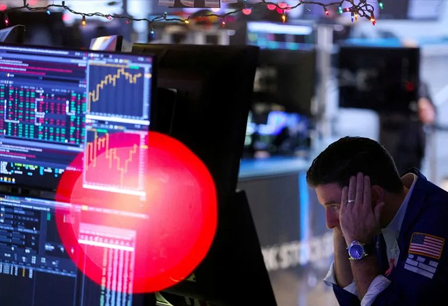Investors are bucking tradition this year by piling into big bank stocks just as major economies are expected to either slow down or fall into recession.
The Stoxx Europe 600 Banks index, a group of 42 big European banks, climbed 21% between the start of the year and late February — when it hit a five-year high — outperforming its broader benchmark index, the Euro Stoxx 600 (SXXL). The KBW Bank Index, which tracks 24 leading US banks, has risen by a more modest 4% so far this year, slightly outpacing the broader S&P 500 (DVS).
Both bank-specific indexes have surged since lows hit last fall.
The economic picture is far less rosy. The United States and the biggest economies in the European Union are expected to grow at a much slower rate this year than last, while UK output is likely to contract. A sudden recession “at some stage” is also a risk for the United States, former Treasury Secretary Larry Summers told CNN Monday.
But the widespread economic weakness has coincided with high inflation, forcing central banks to raise interest rates. That’s been a boon for banks, helping them make heftier returns on loans to households and businesses, and as savers deposit more of their money into savings accounts.
Rate hikes have buoyed the stocks of big banks, but so too has a greater confidence in their ability to weather economic storms 15 years after the 2008 global financial crisis nearly toppled them, fund managers and analysts told CNN.
“Banks are, generally speaking, much stronger, more resilient, more capable to [withstand a] recession,” than in the past, said Roberto Frazzitta, global head of banking at consultancy Bain & Company.
Interest rate rises
Interest rates in major economies started climbing last year as policymakers launched their campaigns against soaring inflation.
The steep rate hikes followed a prolonged period of ultra-low borrowing costs that started in 2008. As the financial crisis ravaged economies, central banks slashed interest rates to unprecedented lows to incentivize spending and investment. And, for more than a decade, they barely budged.
Banks are a less attractive bet for investors in that environment as lower interest rates often feed into lower returns for lenders.
“[The] post-crisis period of very low interest rates was seen as very bad for bank profitability, it squeezed their margins,” said Thomas Mathews, senior markets economist at Capital Economics.
But the rate hiking cycle that got underway last year, and shows few signs of abating, has changed investors’ calculations. Fed Chair Jerome Powell said Tuesday that interest rates would rise more than people anticipated.
Higher potential returns for shareholders are drawing investors back into the sector. For example, the average dividend yield for bank stocks in Europe — the amount of money a company pays its shareholders every year as a proportion of its share price — is now around 7%, said Ciaran Callaghan, head of European equity research at Amundi, a French asset management firm.
By comparison, the dividend yield for the S&P 500 currently stands at 2.1%, and for the Euro Stoxx 600 at 3.3%, according to Refinitiv data.
European bank stocks have risen particularly sharply in the past six months.
Mathews at Capital Economics attributed their outperformance relative to US peers partly to the fact that interest rates in the countries that use the euro are still closer to zero than in the United States, meaning that investors have more to gain from rates rising.
It can also be put down to Europe’s remarkable reversal of fortune, he said.
Wholesale natural gas prices in the region, which hit a record high in August, have tumbled back to their levels seen before the Ukraine war, and a much-feared energy shortage has been avoided this winter.
“Only a few months ago people were talking about a very deep recession in Europe compared to the US,” Mathews said. “As those worries have unwound, European banks have done particularly well.”
No ‘hidden skeletons’
But European economies are still fragile. When economic activity slows down, bank stocks are typically among those hit hardest. That’s because banks’ earnings are, to varying extents, tied to borrowers’ ability to repay their loans, as well as to consumers’ and businesses’ appetite for more credit.
This time around, though — unlike in 2008 — banks are in a much better position to withstand defaults on loans.
After the global financial crisis, regulators sprang into action, requiring lenders, among other measures, to have a large capital cushion against future losses. Capital is made up of a bank’s own funds, rather than borrowed money such as customer deposits.
Lenders must also hold enough cash, or assets that can be quickly converted into cash, to repay depositors and other creditors.
Luc Plouvier, a senior portfolio manager at Van Lanschot Kempen, a Dutch wealth management firm, noted that banks had undergone “structural change” in the past decade.
“A lot of the regulation that’s been put in place [has] forced these banks to be more liquid, to have much more [of a] capital buffer, to take less risk,” he said.












